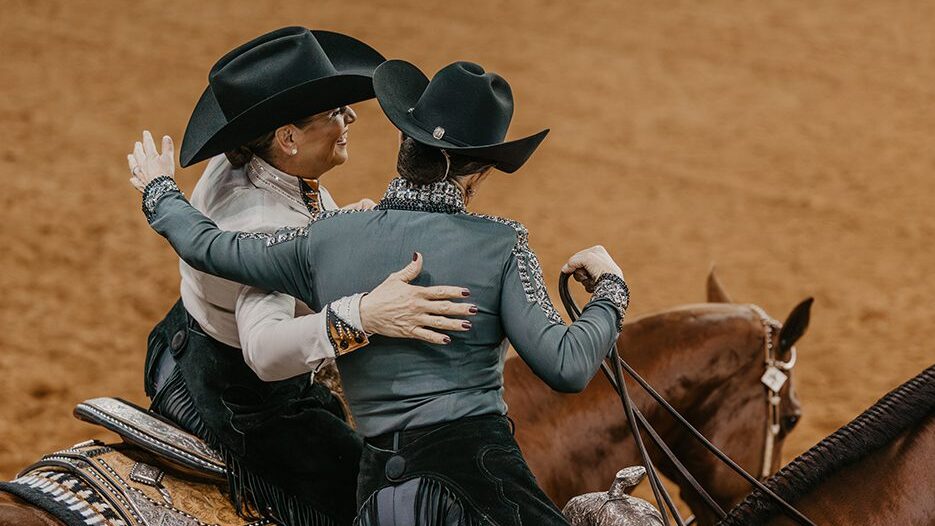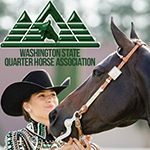Showing horses is an individual sport because you and your horse compete against yourself and, realistically, the other teams in any class. However, most competitors attend top shows with a training barn in today’s show world.
The training barn environment presents an interesting dynamic in that competitors must share the trainer’s divided attention and may even compete against others from their own barn. This can either make the show experience more fun and less lonely…or add to the pressures and anxiety of showing.
We spoke with top amateurs, including Multiple World and Congress Champion Penni Himes, and multiple World Champion Dallas McGee, to get their tips on making the show environment more enjoyable for everyone.
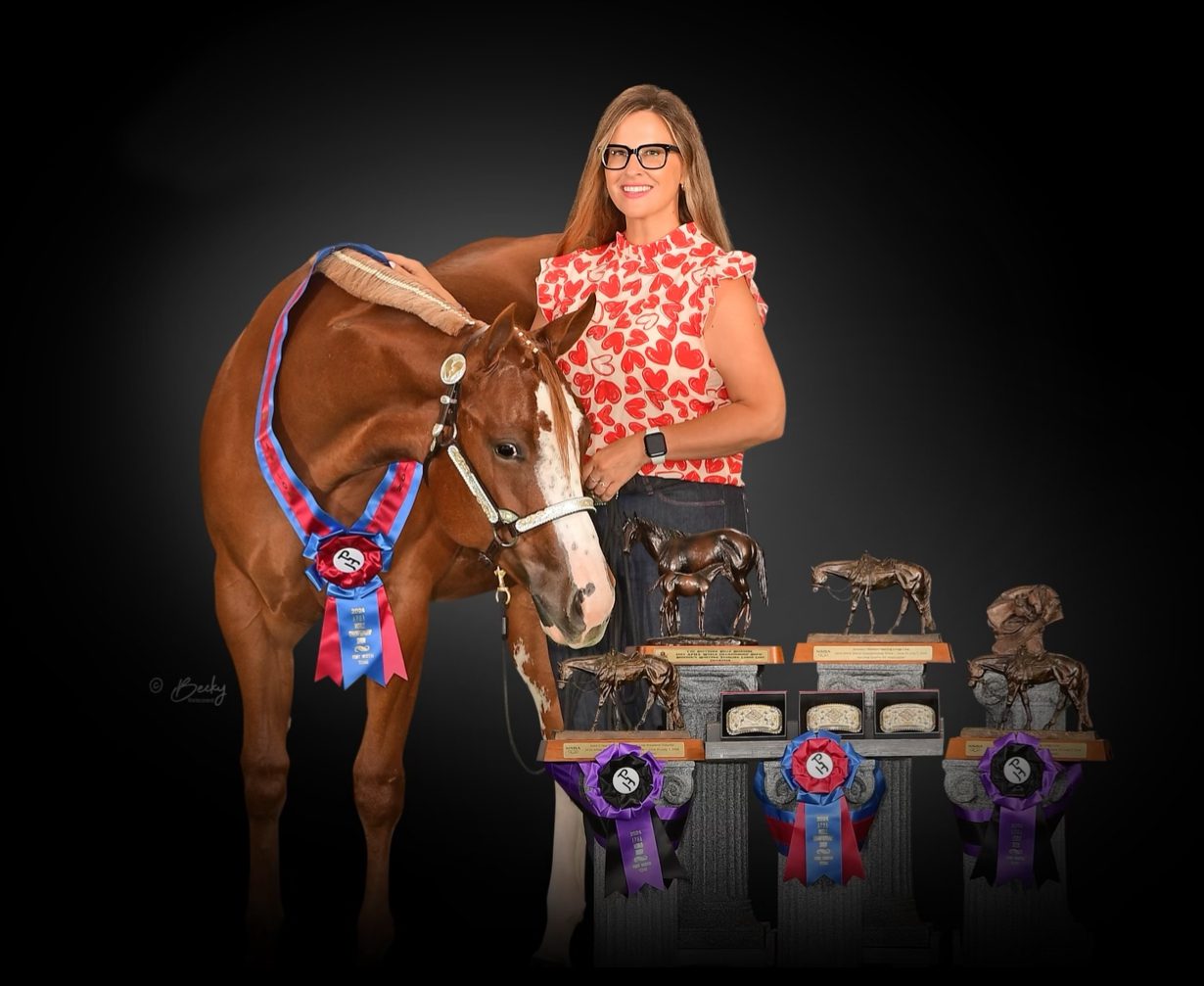
Lend a Hand
Everyone knows that hurrying up anxiety before a class can be very stressful. Often, especially during a busy show with a compact schedule, the trainer can’t be in multiple places simultaneously and help people get their horses or themselves ready. This is a prime time to lend a helping hand if you’re able.
“I always reminded my daughters when they showed that they need to ‘keep their eyes open’ – look around and be aware of little ways you can help your team,” Himes advises.
“It can be easy when you’re busy showing to have tunnel vision to your own needs,” Himes admits. “But it makes a huge difference to barn culture when you can help.
“If you see someone struggling, ask them how you can be of assistance,” Himes recommends. “It takes a village to show, and there are always little ways to help a trainer, barn mates, assistants, and stall cleaners. Sometimes, the little things are the most help: holding a horse for an assistant, tying a horse for a stall cleaner, helping someone put their hair back, or fly spraying a horse before they leave the aisle.”
“I genuinely enjoy helping barn mates. I tend to be a bit of a mother hen,” McGee laughs. “I’m very Type A, so I find personal fulfillment by helping teammates when to get ready and ensuring their horse is tacked up and groomed. I want to make sure everyone has numbers on, outfits are polished, etc. I hate watching people struggle, especially first-timers, because showing at a top level can be overwhelming.”
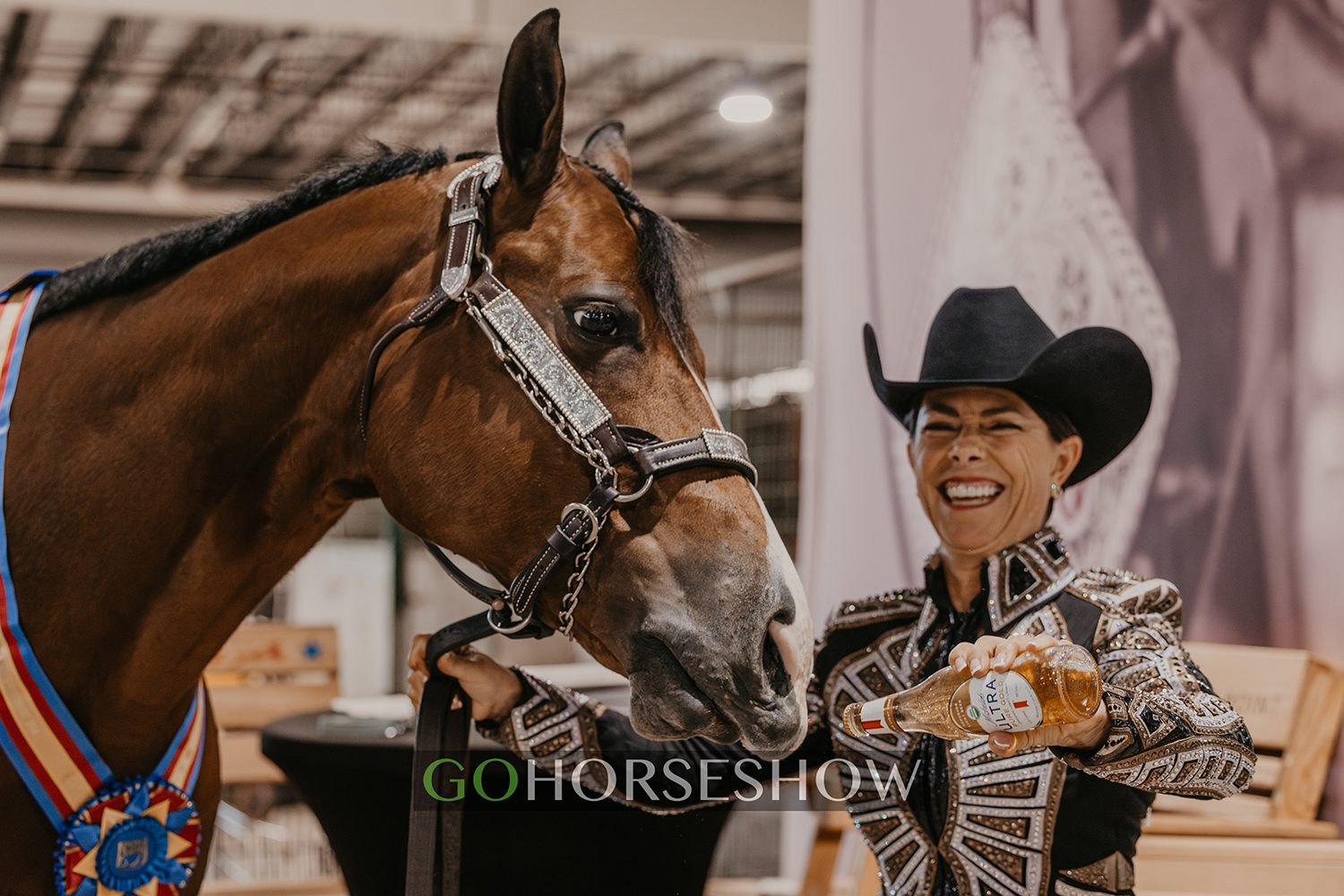
Be A Contributor
One of the biggest benefits of showing as part of a team is that you can split trainer costs with others, making the financial burden a little lighter for everyone. However, few situations lead to more fractures in relationships than when people don’t contribute to the costs, which can quickly make others angry and resentful.
Himes observes, “I’ve found, both in and out of the horse world, some people are more giving and others are more frugal. I don’t think people necessarily are malicious about lack of contribution; often, they don’t know who contributes behind the scenes because most people don’t broadcast that.”
Himes found a method that worked well for her when her daughters were showing to help families reduce costs and foster a friendly environment at the same time. “Many years ago, I suggested to our trainer that the people in the barn create a sign-up sheet for meals where each family contributed two meals to a big show.”
She continues, “Costs are one of the big reasons that people struggle with showing at top levels. Going with a group and spreading out those costs helps make it more manageable while bringing the group together and making the atmosphere family-friendly.”
McGee explains, “I believe that everyone in a barn should be on the same fee scale and that the costs should be included in a contract so that everyone has a fair expectation of what to budget and what they are accountable for.”
She reflects, “In my experience, so much of the payment drama is eliminated when you have a trainer who covers all of the community expenses and hospitality items and then splits that total number evenly amongst the clients.”
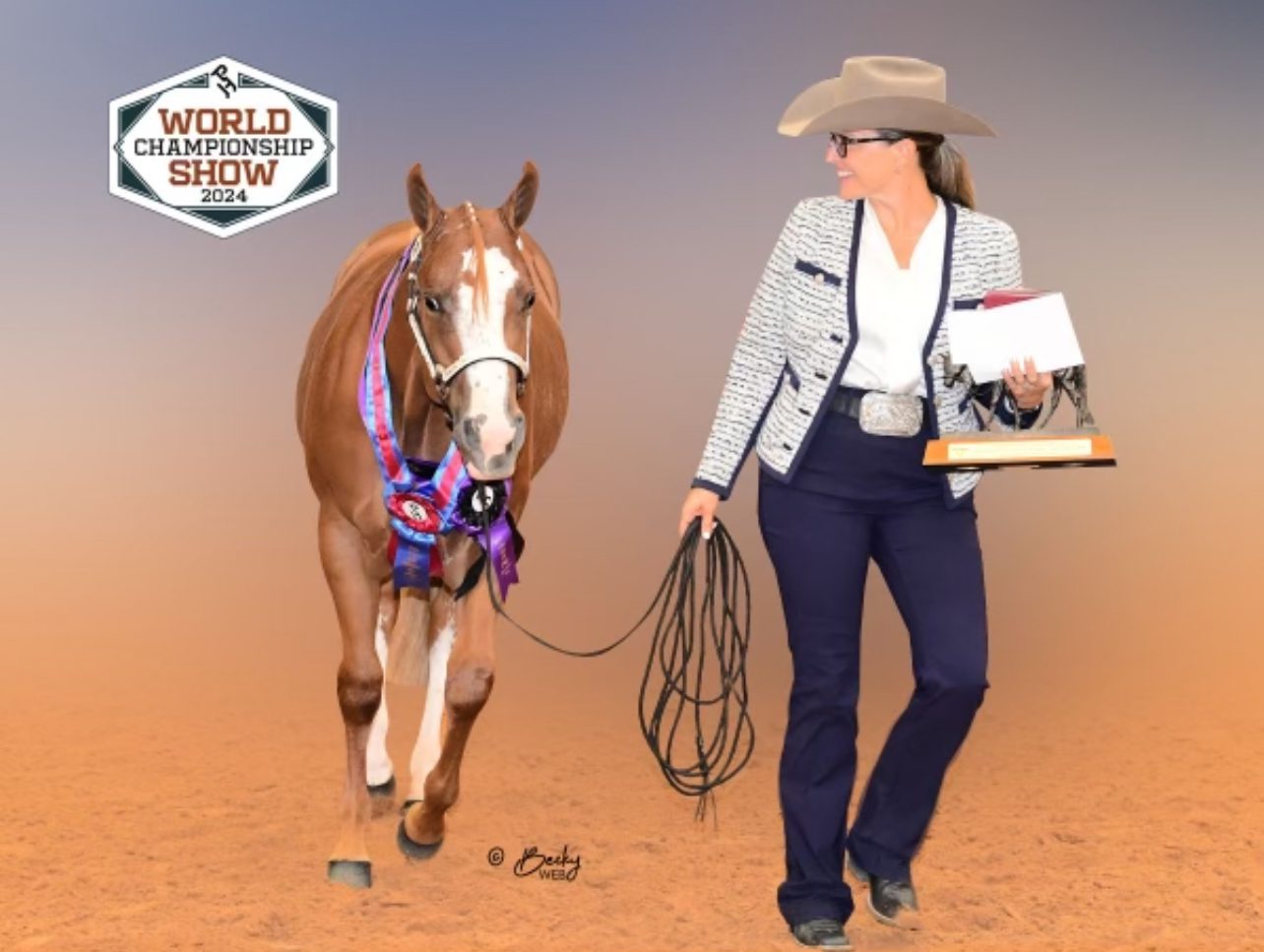
Support Your Team
Most people enjoy knowing that their friends are cheering for them. If there aren’t schedule conflicts, showing up to watch and cheer for a teammate’s class is a great way to make them feel supported and valued.
McGee emphasizes, “I make it a point before each show to list the classes my friends and teammates are in so that I can do my best to watch them and support their dreams. It goes a long way to know people are cheering for you and want you to do well. I like acknowledging everyone’s hard work and accomplishments and being available to take pictures and yell when they succeed.”
Himes agrees. “I think this tip also goes to being aware of your team and thinking about others. If you don’t have a conflict, there are major benefits to cheering on your team. Not only do you make that person feel supported, but you also can learn so much just by watching classes.”
She smiles, “When I hear my teammates whistling for me, it feels so good and builds my confidence and the sense of camaraderie to the barn. I can’t emphasize enough how much I appreciate when someone videos my go and sends it to me. Knowing this, I do my best to reciprocate and get those special videos and pictures for friends. I also enjoy cheering my friends on with my obnoxiously loud whistle – you can’t mistake that it’s me in the stands, that’s for sure!”
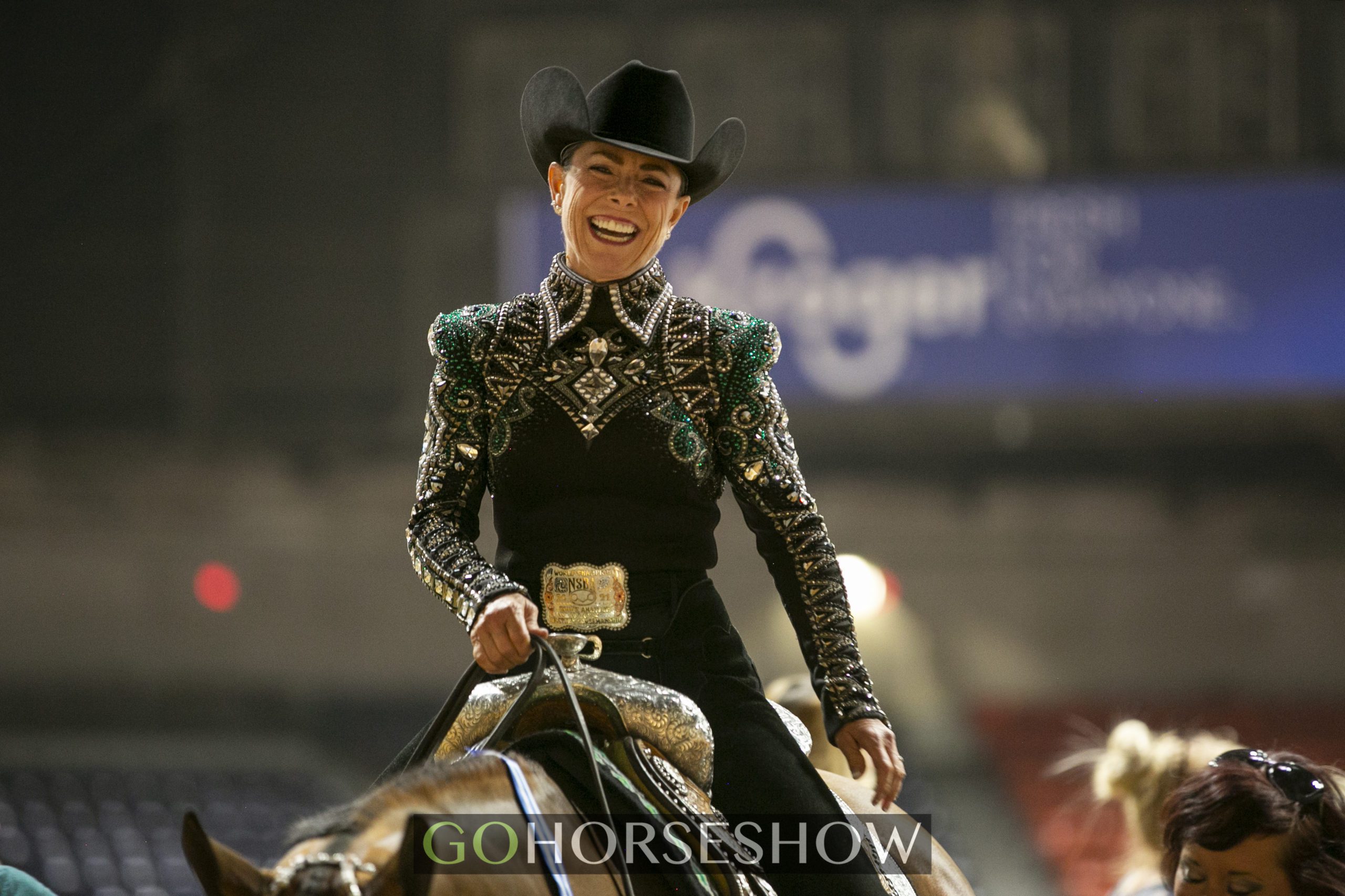
Don’t be a Sore Loser or Poor Winner
One of the more awkward team dynamics is when teammates compete against each other because it is somewhat inevitable that one will perform better. Bad attitudes can quickly snowball and harm the group dynamic if not handled with class.
“I think it is important as a sportsman to be a good role model and example,” McGee advises.
“Of course, I want to win. And I want to feel like I can be happy myself when I win. But, inevitably, I won’t always win, and I want to support others on their journey and cheer them on when they win, too. There are tons of milestones and setbacks along the way, and while it’s ok to be bummed over a loss or excited over a win, it’s important to be respectful of those around you in the way you deal with it.”
Himes adds, “Some of my biggest advice regarding horse showing is to be kind and humble.”
She reminds us, “There can only be one winner, and if you win a class, be happy for yourself while staying humble in your victory. And if you lose, take it as an opportunity to learn and grow from it. Horse showing is a great primer for the ‘real world’ in that sometimes you are at the top of your game, and other days you can go down in flames. But what keeps us returning is a love of the sport and having fun. It simply isn’t fun when the barn environment becomes very competitive in a negative way.”
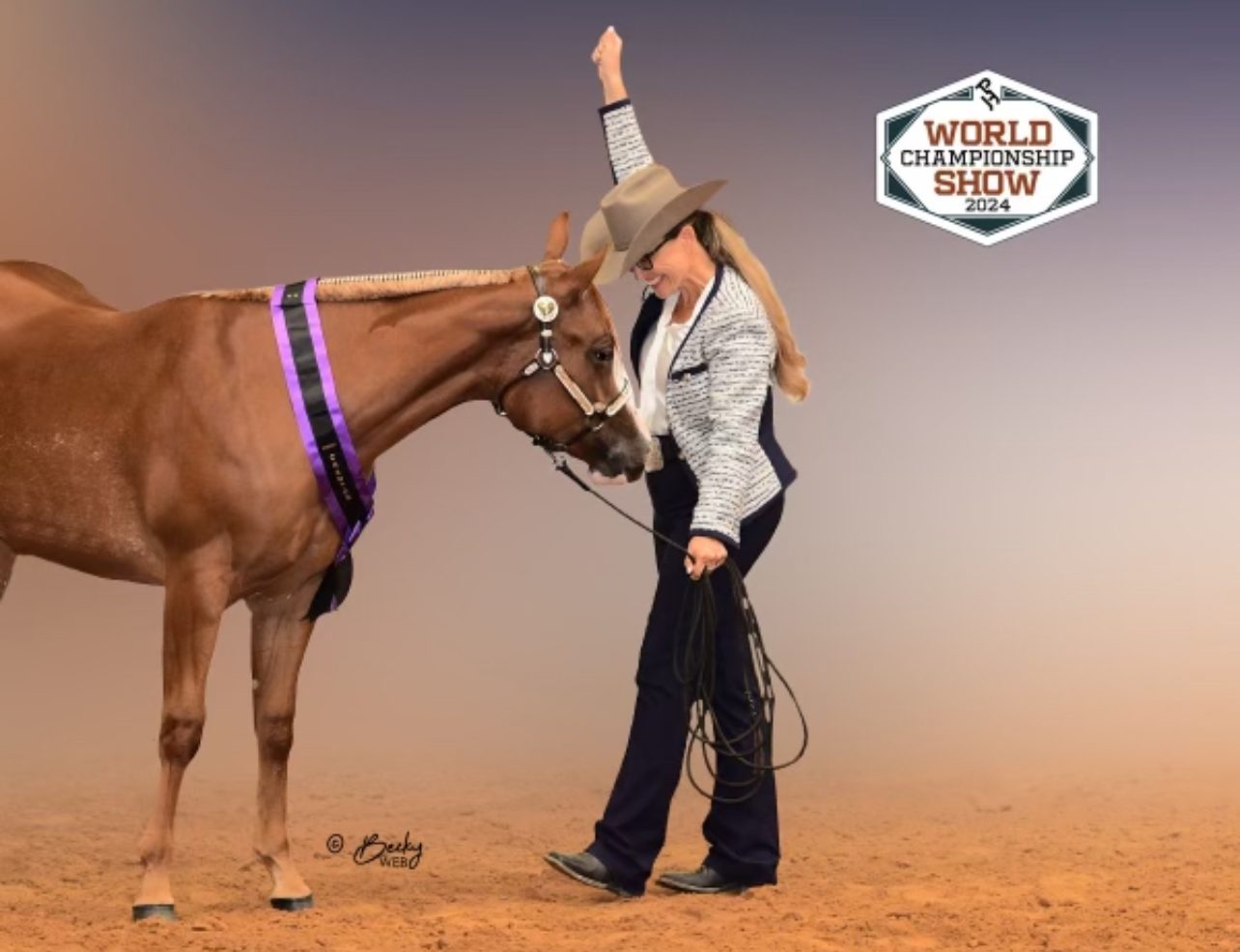
Get to Know Your Team Away from the Barn
Perhaps one of the best ways to foster friendships in the barn is to get to know each other outside of the barn environment. Going out for a group dinner, even if only once at the show, can go a long way to helping develop real relationships with teammates beyond superficial aisle banter.
McGee gushes, “My closest friends are people I show horses with – whether in my barn, friends online, or people I met in my classes. I love building relationships with the people I show with. It is so nice to have a community that understands your passion and your efforts to show.”
She highlights, “I think it’s important to leave the show and go out with teammates and have a break from the barn environment to celebrate people’s wins and cheer them up after struggles. It’s a great way to regroup and focus on the relationships with the people involved.”
Himes admits, “Everybody clicks with different people, and when we have time, it is so fun to go out with our barn friends and decompress away from the show environment.”
She continues, “Now that I’m showing as an adult and not with my kids, I enjoy sharing an Airbnb with a teammate because it allows us to socialize and enjoy the experience of the show together – you can celebrate the good times, and commiserate over the hard times. I don’t have a sister, and so it is nice to spend time with my ‘show sisters,’ so to speak.”
Don’t be a Gossip
Finally, one great tip our non-pros mentioned revolves around staying in your lane. Being part of a barn often allows teammates to be privy to information regarding horses, trainers, and teammates before the world is aware. To maintain good relationships, it is best to be supportive internally without sharing information that isn’t yours to reveal.
Himes reminds us, “A barn that has less drama is happier. Therefore, if it isn’t your story, don’t tell it. Sharing information that isn’t yours to share isn’t worth the trouble: it will hurt the person you’re talking about, the barn atmosphere, and your reputation because nobody wants a ‘friend’ who doesn’t keep their confidences.”
McGee adds, “It is important to allow yourself to be a safe sounding board for your teammates. People should feel like they can talk to you about their struggles and goals. It is very important to keep the confidence of your teammates by not sharing their private business with others.”
***
Ultimately, being with a supportive, happy, fun barn team makes the experience so much more enjoyable for everyone and something people want to return to year after year.
When it comes to being a good teammate, if you remember the golden rule of treating others the way you’d like to be treated, you will be well on your way to having a fun show experience and maybe making lifelong friends.


